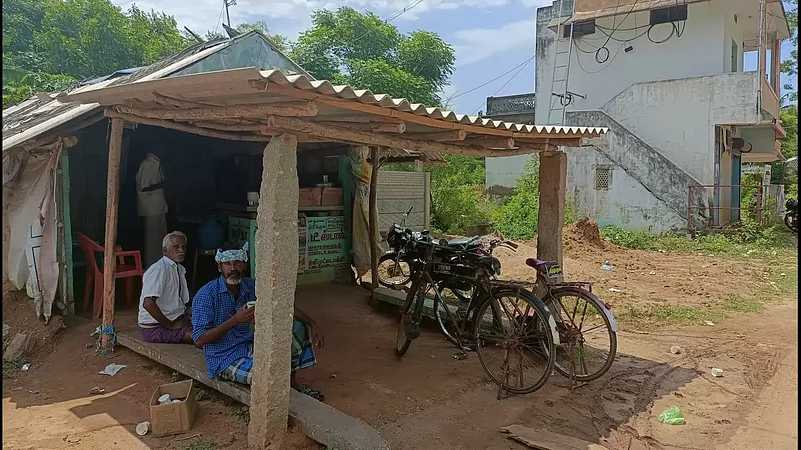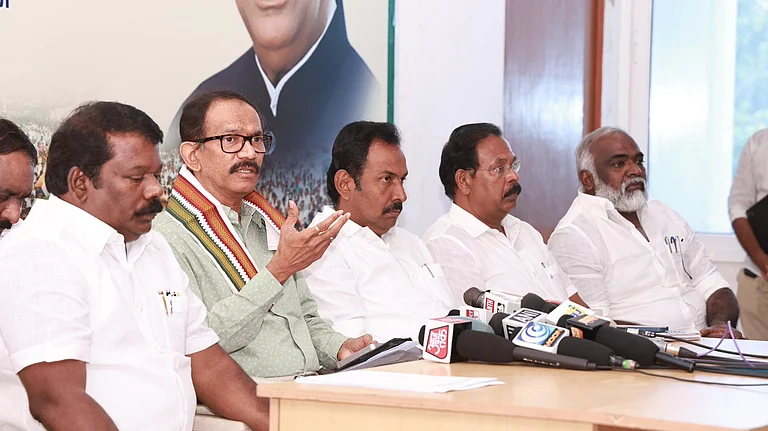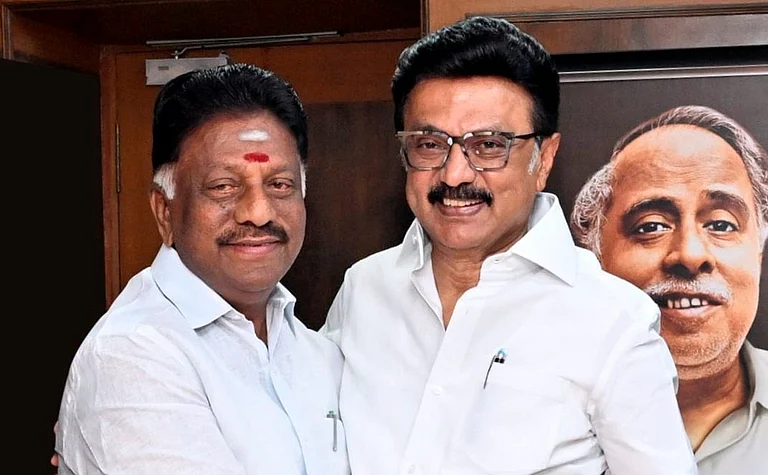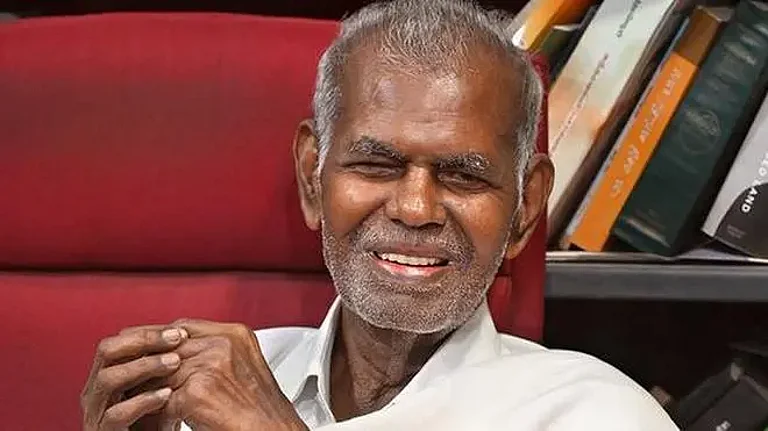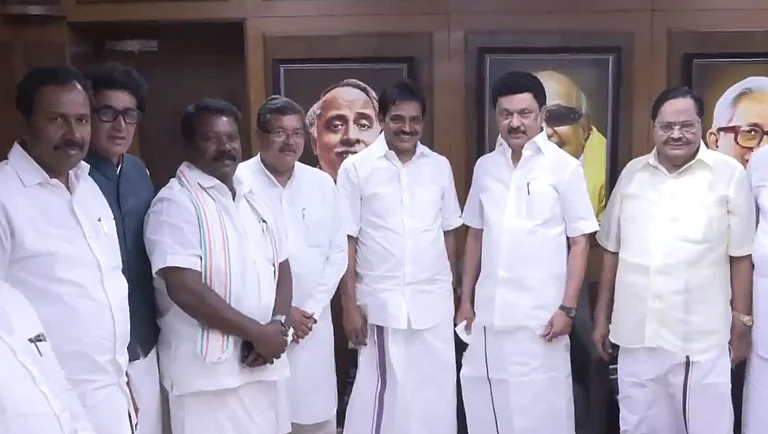In August 2022, Udayalakshmi, a 42-year-old Dalit woman, endured a brutal assault and a barrage of insults when she ventured to feed the cattle in a nearby grass field in Kilamangalam village in the Thanjavur District of Tamil Nadu. This wasn't a response to any perceived wrongdoing on her part, but rather the culmination of deep-seated caste animosity that had festered for months, emanating from the dominant 'Kallar' caste within the village. The Dalit youth within the community had refused to adhere to the restrictions imposed by the dominant caste members. They had pressed for access to local hair salons, declined to use separate cups designated for Dalits while having tea, and actively engaged in the temple festival, even dancing alongside members of the dominant caste. These seemingly innocuous acts were deemed as "unforgivable transgressions", pushing the Kallar community to the point of subjecting a woman to a brutal beating as she tended to the cattle.
The Kallar community cannot be labelled as part of the 'upper caste' category, as it belongs to the MBC (Most Backward Class), which is a middle caste within the caste-based social structure. In Tamil Nadu, caste conflicts mostly occur not between Brahmins and Dalits, but between middle castes and Dalits. The downtrodden Dalits live in excluded pockets a few Kilometers away from the settlements of the dominant caste. There are only seventy families with an approximate population of 300 against the majority Kallars.
Set against the backdrop of dry landscapes, the village of Kilamangalam stands as a clear representation of the conflicting elements concealed beneath its rural exterior. As the sweltering heat of summer casts its unrelenting grip, the village unveils a complex tapestry of social dynamics, where age-old practices of exclusion and untouchability continue to linger like shadows, casting a pall over the lives of its Dalit inhabitants.
Many Faces Of Untouchability Practices
"In this tea shop, they follow the ‘two tumbler system’," pointing towards a small tea shop, Thinkal Kannan, Abhimannan, and Dorai Rajan - the Dalit men Outlook met in the village - explained. The shop stood beneath a thatched roof constructed from woven dry palm leaves. Its interior consisted solely of two wooden benches, while shabby walls enclosed the space, offering a glimpse into the economic struggles the village faced. However, economic disadvantage does not hinder the practice of untouchability.
Referred to as the 'two-tumbler system' by Dalit rights activists, this practice involves the use of separate glasses or cups for Dalits in tea shops. A Madurai-based Dalit rights organisation called 'Evidence' conducted an in-depth analysis of this situation. Their 2012 study revealed that 83% of villages in the Madurai District adhered to the 'two-tumbler system.' Furthermore, the study found that 91% of tea shops provided no seating for Dalits, who were required to stand and drink from the designated tumblers. The study encompassed 463 tea shops across 149 villages in Madurai.
"The situation has seen some improvement, but not to a significant extent," remarks Sivaguru, the State Secretary of TNUEF (Tamil Nadu Untouchability Eradication Forum), an organisation affiliated with the CPI(M). Similar to Kilamangalam, several villages in Tamil Nadu persist in this unjust practice of using separate cups for Dalits.
In 2010, TNUEF conducted a survey on the various forms of untouchability practised in Tamil Nadu. "The findings were astonishing. We discovered that around 80 different forms of untouchability were being practised," says Sivaguru. "Can you believe that Dalits were not even allowed to raise male dogs?" he asks. "People of the dominant caste couldn't tolerate dogs raised by Dalits mating with dogs belonging to other castes," he said.
The survey covered 1849 villages across 22 districts. Dalit men were barred from growing moustaches, wearing ironed clothes and footwear, riding bikes, and even receiving mail delivery at their homes – they had to collect it from the Post Office. They were denied access to hair salons and were barred from sitting in bus shelters. They were denied entry not only to temples but to public crematoriums as well. "While some of these practices have changed or stopped, many of them are still in practice, as can be seen in Kilamangalam," says Sivaguru.
In 2022, Dalit youths in Kilamangalam village demanded entry into hair salons. They approached revenue officials and the police to assert their rights. "We entered salons forcefully and demanded haircuts, but they refused," recalls Abhimannan. In retaliation to this act, the grocery shops in the village were barred from selling things to Dalits. "There were also instructions to the shopkeepers not to sell sanitary napkins to Dalit women," says Dorai Rajan.
Kilamangalam village has four crematoriums: "One for the Kallar community, one for Dalits, the third for people from castes like Smiths and Artisans, and the fourth one for other backward communities. (The Kallar community, which venomously practices apartheid towards Dalits, falls under the MBC category - the Most Backward Ward in the categorization in official records.)
‘The Economic Prosperity Of Dalits Sharpens Caste Conflicts’
According to Dalit rights activists in Tamil Nadu, the economic progress achieved by the younger generation of Dalits through migration has exacerbated caste-based prejudice against them. "Numerous youths in this village have migrated to countries such as Singapore and Malaysia. Once they began earning, they ceased their parents' labour in the agricultural fields owned by the upper caste. They are unwilling to perpetuate the servitude their ancestors endured. This has emerged as a significant catalyst for escalating caste-related tensions," states Kalai Shelvi, a native of Thanjavur and an activist with the Untouchability Eradication Forum. The dynamics of caste tension in Kilamangalam village are intricately interwoven with the economic strides achieved by the younger generation of Dalits through migration.
This transformation is poignantly reflected in the village's landscape. Amidst the Dalit settlements, a visual narrative emerges that underscores this very argument. Traditional shacks, with roofs fashioned from palm leaves, exist alongside a newer sight - the emergence of sturdy, concrete houses. These pucca houses stand as a testament to the changing circumstances of the Dalit community. While some are currently under construction, others stand as completed symbols of progress. The striking contrast between the traditional shacks and the contemporary concrete homes serves as a visual representation of the evolving dreams and economic progress of the Dalit community. Simultaneously, it brings to light the intricate web of caste tensions that these transformations intensify within the village.


